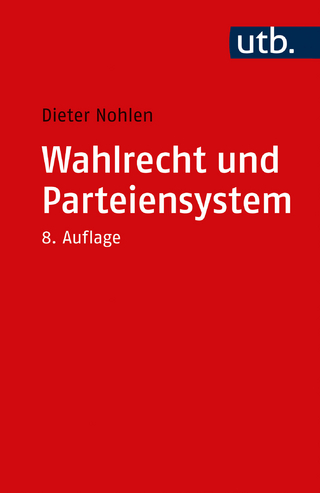
Bottlenecks
Oxford University Press Inc (Verlag)
978-0-19-981214-1 (ISBN)
Equal opportunity is a powerful idea, and one with extremely broad appeal in contemporary politics, political theory, and law. But what does it mean? On close examination, the most attractive existing conceptions of equal opportunity turn out to be impossible to achieve in practice, or even in theory. As long as families are free to raise their children differently, no two people's opportunities will be equal; nor is it possible to disentangle someone's abilities or talents from her background advantages and disadvantages. Moreover, given different abilities and disabilities, different people need different opportunities, confounding most ways of imagining what counts as "equal."
This book proposes an entirely new way of thinking about the project of equal opportunity. Instead of focusing on the chimera of literal equalization, we ought to work to broaden the range of opportunities open to people at every stage in life. We can achieve this in part by loosening the bottlenecks that constrain access to opportunities-the narrow places through which people must pass in order to pursue many life paths that open out on the other side. A bottleneck might be a test like the SAT, a credential requirement like a college degree, or a skill like speaking English. It might be membership in a favored caste or racial group. Bottlenecks are part of the opportunity structure of every society. But their severity varies. By loosening them, we can build a more open and pluralistic opportunity structure in which people have more of a chance, throughout their lives, to pursue paths they choose for themselves-rather than those dictated by limited opportunities. This book develops this idea and other elements of opportunity pluralism, then applies this approach to several contemporary egalitarian policy problems: class and access to education, workplace flexibility and work/family conflict, and antidiscrimination law.
Joseph Fishkin is an Assistant Professor at the University of Texas School of Law, where he teaches and writes about the law of discrimination and equal opportunity in areas from employment to voting rights.
Introduction ; A. How We Think About Equal Opportunity ; B. Opportunity Pluralism ; C. Implications of the Theory ; Chapter I: Equal Opportunity and Its Problems ; I.A. Conceptions of Equal Opportunity ; I.A.1. Rawlsian Equal Opportunity & Starting Gate Theories ; I.A.2. Tests, Bias, and <"Formal-Plus>" ; I.A.3. Luck Egalitarianism and Natural Talents ; I.A.4. Talent, Luck, and Dworkin ; I.B. Beyond Distributive Justice: Opportunities and Flourishing ; I.C. Four Problems for Equal Opportunity ; I.C.1. The Problem of the Family ; i. Parental Advantages ; ii. Mitigation and Compensation ; iii. Families and the Principle of Fair Life Chances ; I.C.2. The Problem of Merit ; i. An Admissions Example ; ii. Merit for Luck Egalitarians ; iii. Roemer's EOp Proposal and the Limits of Merit ; iv. Merit and Self ; I.C.3. The Problem of the Starting Gate ; i. Limits of the Ex Ante Perspective ; ii. Compounded Advantage and the Concatenation of Opportunities ; iii. Focus on the Youngest? ; iv. Them That's Got Shall Get ; I.C.4. The Problem of Individuality ; i. Schaar's Nightmare and Nozick's Dream ; ii. Toward A Different Kind of Equal Opportunity ; Chapter II: Opportunities and Human Development ; II.A. Natural Difference in Political Theory ; II.B. Intrinsic Differences, Nature, and Nurture ; II.B.1. Intrinsic Difference Claims ; II.B.2. Models of Nature and Nurture ; II.B.3. Not Even Separate ; II.C. The Trouble with <"Normal>" ; II.C.1. There Is No <"Normal>" ; II.C.2. The Flynn Effect: An Object Lesson in the Role of Environment ; II.D. An Iterative Model of Human Development ; II.D.1. Developing Capacities ; II.D.2. Interaction with Family and Society ; II.D.3. Interaction With the World of Employment ; II.E. The Trouble With <"Equal>" ; II.E.1. A Simple Equalization Problem ; II.E.2. What if We Don't All Have the Same Goal? ; II.E.3. The Endogeneity of Preferences and Goals ; II.E.4. Essential Developmental Opportunities ; Chapter III: Opportunity Pluralism ; III.A. Unitary and Pluralistic Opportunity Structures ; III.A.1 Individuality and Pluralism ; III.A.2 Positional Goods and Competitive Roles ; III.A.3. The Anti-Bottleneck Principle ; III.A.4. Who Controls The Opportunity Structure? ; III.B. The Dynamics of Bottlenecks ; III.B.1. Types of Bottlenecks ; III.B.2. Legitimate Versus Arbitrary Bottlenecks ; III.B.3. Severity of Bottlenecks ; III.B.4. How Many People Are Affected By This Bottleneck? ; III.B.5. What To Do About Bottlenecks ; III.B.6. Bottlenecks and the Content of Jobs ; III.B.7. Situating Bottlenecks Within the Opportunity Structure as a Whole ; III.B.8. Bottlenecks, Efficiency, and Human Capital ; III.B.9. Potential Benefits of Bottlenecks ; III.C. Flourishing, Perfectionism, and Priority ; III.C.1. Equal Opportunity Without a Common Scale ; III.C.2. Thin Perfectionism and Autonomy ; Chapter IV: Applications ; IV.A. Class as Bottleneck ; IV.A.1. Fear of Downward Mobility: A Parable About How Inequality Matters ; IV.A.2. College as Bottleneck ; IV.A.3. Segregation and Integration: A Story of Networks and Norms ; IV.B. Freedom and Flexibility in the World of Work ; IV.B.1. Flexibility, Job Lock, and Entrepreneurialism ; IV.B.2. Workplace Flexibility and Gender Bottlenecks ; IV.C. Bottlenecks and Antidiscrimination Law ; IV.C.1 Some Cutting-Edge Statutes and Their Implications ; IV.C.2. Whom Should Antidiscrimination Law Protect? ; IV.C.3. An Example: Appearance Discrimination ; IV.C.4. Bottlenecks, Groups, and Individuals ; IV.C.5. How Should Antidiscrimination Law Protect? ; Conclusion ; Acknowledgments ; Index
| Verlagsort | New York |
|---|---|
| Sprache | englisch |
| Maße | 163 x 239 mm |
| Gewicht | 499 g |
| Themenwelt | Geisteswissenschaften ► Philosophie |
| Recht / Steuern ► EU / Internationales Recht | |
| Sozialwissenschaften ► Politik / Verwaltung ► Politische Systeme | |
| Sozialwissenschaften ► Politik / Verwaltung ► Politische Theorie | |
| Sozialwissenschaften ► Soziologie | |
| Wirtschaft ► Volkswirtschaftslehre ► Makroökonomie | |
| ISBN-10 | 0-19-981214-4 / 0199812144 |
| ISBN-13 | 978-0-19-981214-1 / 9780199812141 |
| Zustand | Neuware |
| Haben Sie eine Frage zum Produkt? |
aus dem Bereich


